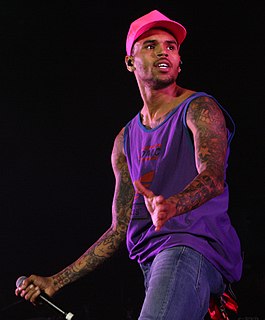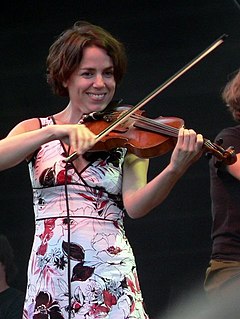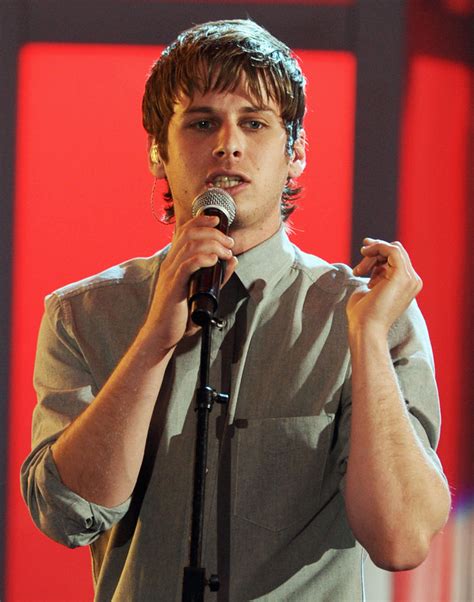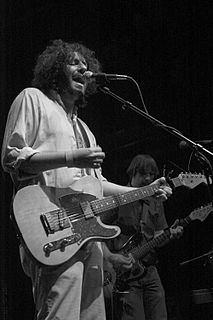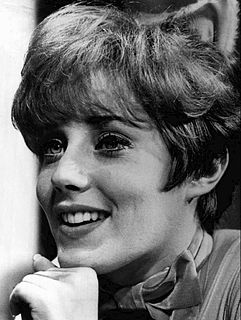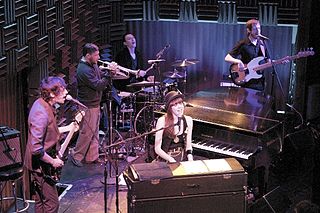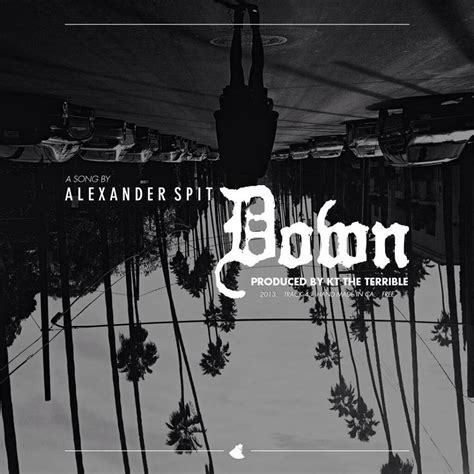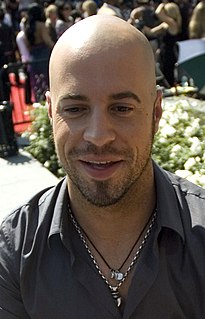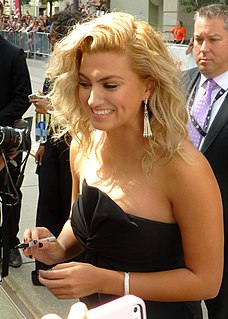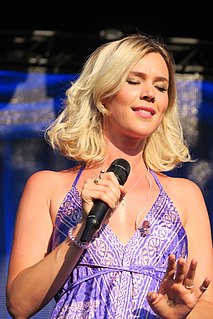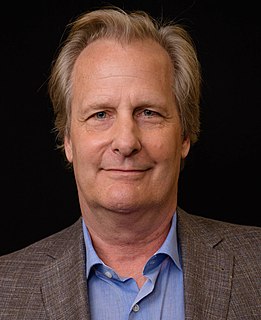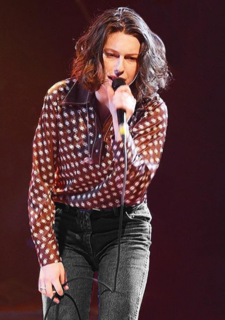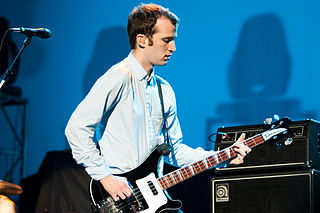A Quote by Chris Brown
I tried to stay away from the Euro beats, and not go totally pop. Instead, I wanted to take the Quincy Jones approach. The record pays homage to the Stevie Wonders, the Michael Jacksons, the Sam Cookes. I wanted to put that classic essence of R&B and soul with the new age of music now. There’s a lot of live instruments, and a lot less Auto-Tune. I really wanted to demonstrate my vocal ability, creating the vibe of me singing along with a band.
Quote Topics
Related Quotes
I just went into the studio and did it all in one take. All I was thinking about was the next record; I had already sourced the tracks I wanted to use. I'd been thinking a lot about it and I wanted to represent myself, Leeds and fabric. I'm not very nationalistic, but I wanted to represent what was coming out of Britain as well as at the moment there's a lot of really good new music.
The short story and the truth is that I was taking vocal lessons here in New York... One day, instead of my lesson, the piano player and I went into a studio... and we put down some demos... Those demos got to Quincy Jones through an agent... He listened to them, he called me, and we started to record.
I wrestled a lot with self-doubt. I've always had such a strong desire for what I wanted for my career, and as I go through it, I'm watching it change and morph into something a little bit different. So there was a lot of confusion as to whether I really wanted to do it, whether I wanted to go for it, because I put so much energy and effort into it, and it's hard.
Hip-hop music in general kind of revolves around singles, and I appreciate that mindset, but at the same time, I wanted to go beyond that. It's not like I was intending to make a classic record - I mean, I'm always trying to make timeless music, but I really just tried to reference the music that on a road trip you can put in and not have to skip a track.
I went to New York. I had a dream. I wanted to be a big star, I didn’t know anybody, I wanted to dance, I wanted to sing, I wanted to do all those things, I wanted to make people happy, I wanted to be famous, I wanted everybody to love me. I wanted to be a star. I worked really hard, and my dream came true.
[ Age Of Trump] was something that I really wanted to do, and I also really wanted it to feel evergreen, so we made a lot of attempts not to bog it down in the campaign fight, even though we were right in the middle of that. I wanted it to be something that could live on and be a conversation piece long after this inauguration, whoever it was going to be.
I guess in general, because it's such a popular trend in mainstream American pop, that there's been some kind of negative reaction to it. But at the same time, it's a really interesting effect and really interesting texture, and a lot of credit goes to Rostam for producing our music, and all the work that he puts into it, and just trying different things. Ezra did a vocal take, Rostam threw auto-tune on it, and we all liked the way it sounded.
